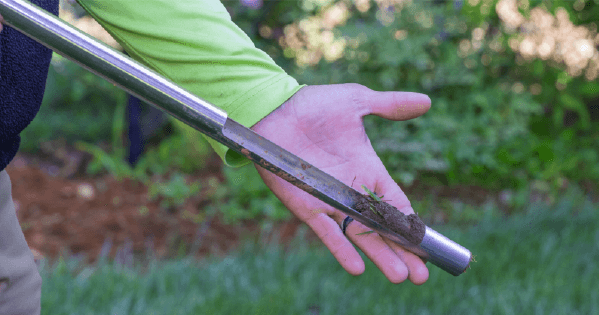Caring for your Herbs

As we talked about last week, April is Gardening Month. We hope that our last entry about the basics of gardening enticed a few of you first-timers to exercise your green thumbs this season! If are gardening this season, you have probably realized already that different plants come with a different set of care instructions. This week, Simply Green Lawn Care wants to talk about herbs. Most of us have used herbs like basil or thyme in our kitchens when preparing meals or drinks, so these plants are great to have on hand.
Basil
- Water and Sun: Basil is one of those plants that likes a steady supply of moisture to stay at optimal health. If your basil is planted in the ground, or in a spot where it does not move, use mulch to help retain the moisture in the soil. Planting basil in a container you can move in and out of the sun may make it easier to care for this plant.
- General Care: Be sure to pinch off flowers to keep your basil plant producing.
- Harvesting: Basil is at its most flavorful and fragrant just as it begins to bud. So, this is also the best time to harvest.
- Uses: Most commonly used in tomato sauces or pestos. Basil can also be chopped and sprinkled over a salad.
Mint
- Water and Sun: Mint should be planted in an area that receives regular sunlight. This herb, like basil, likes to receive a steady supply of moisture. So, if you plant your mint in the ground, use mulch to help retain moisture in the soil.
- General Care: This is one of those plants that can be neglected a little bit and still bounce back. Just be sure to keep it evenly moist.
- Harvesting: You can harvest a mint plant up to 3 times in a season, or, like a lot of people, pick the leaves off as you need them.
- Uses: Mint Juleps are a great way to use your mint, and enjoy a hot summers day. Mint can also freshen up a fruit salad, or enhance a tea.
Thyme
- Water and Sun: Thyme should be given a lot of sunlight each day (avoid heavy shade), and planted in soil with good drainage. Water your thyme in the warmer months of spring and summer every 10 to 15 days at a depth of 1 inch.
- General Care: Thyme needs little care to be bountiful.
- Harvesting: Don’t take more than 1/3 of growth at any one time. You can pick leaves throughout the season as needed, or harvest the whole plant when it begins to bloom.
- Uses: Thyme is used a lot in cooking nowadays. It has been used to put a new spin on scrambled eggs, in dry rubs, on breads or stuffing chickens.
Rosemary
- Water and Sun: Rosemary should receive a lot of sun, and needs well drained soil. Rosemary should be watered sparingly.
- General Care: Make sure to prune rosemary on a regular basis to keep it from getting lanky. Rosemary can grow to be a large plant so it needs a good deal of space.
- Harvesting: You can cut the stems of rosemary at anytime for freshness. During the winter months, rosemary should be brought in doors. You can also dry the leaves and store in an airtight container for use year-round.
- Uses: Rosemary can be used in soups, sprinkled on top of fish or chicken, or as an oil infusion.
About Simply Green Lawn Care

Simply Green aims to provide the highest quality lawn care, mosquito control, and lawn pest control services to Georgia residents.
We are locally owned and operated which allows us to be accessible, attentive, and responsive for customers in Georgia.
Our well-trained team is easy to work with and determined to exceed expectations.
All our plant health care specialists are Georgia Department of Agriculture Certified and maintain their Category 24 applicators license.

